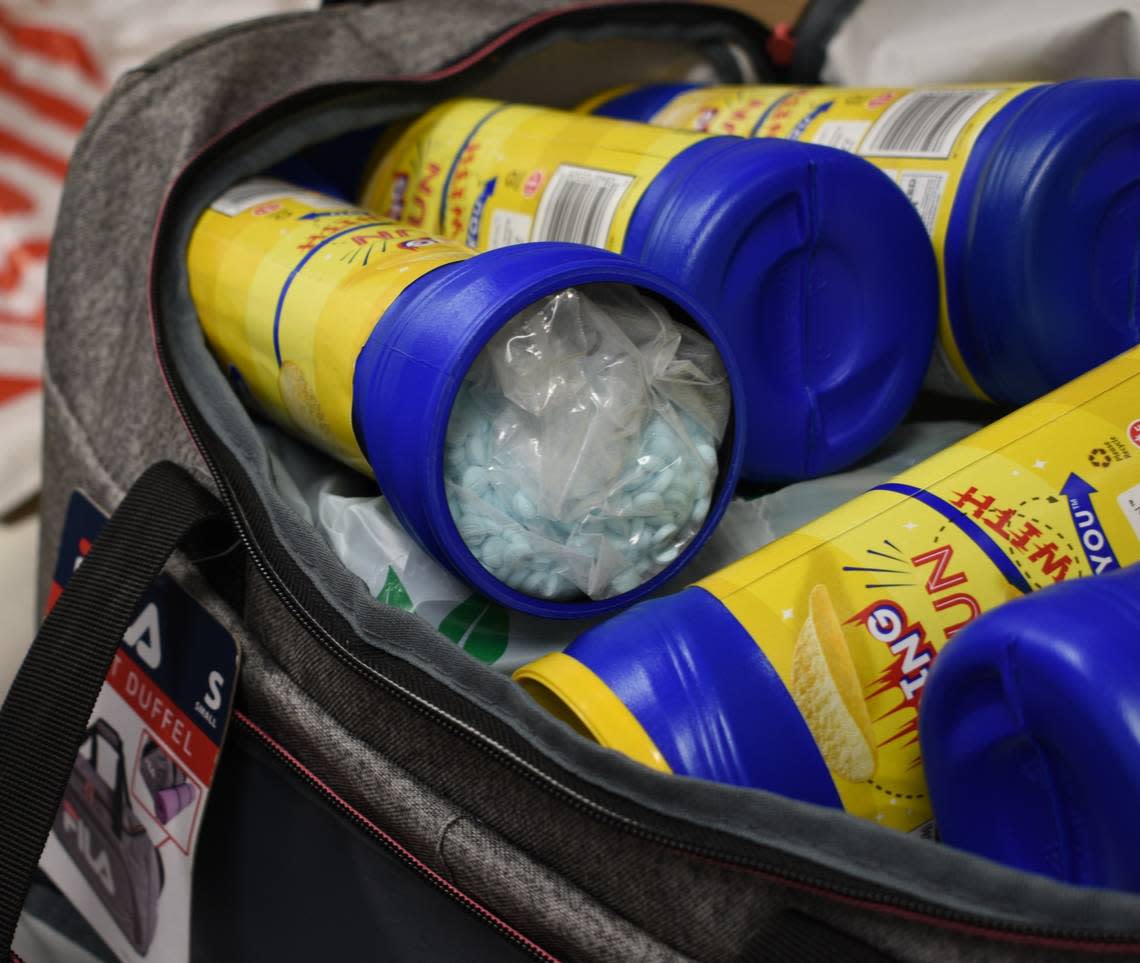Bellingham acts on measure to criminalize drug use in public

A split Bellingham City Council voted to criminalize public drug use on its third and final reading of the ordinance Monday night, April 10, paving the way for the rule to take effect in 15 days.
In a 5-2 vote, council members approved an ordinance that makes public use of a controlled substance without a prescription a misdemeanor subject to arrest, in the same way that public use of alcohol and marijuana are civil infractions.
Council members Michael Lilliquist and Kristina Michele Martens voted against the measure.
“This is about moving them to dimmer streets where we are not selling $500 lawn chairs. Where are we going to house them?” Martens said during the discussion Monday night.
Councilman Skip Williams said that the ordinance was “not the war on drugs” and that he hoped it could become an “off-ramp to sobriety” for people addicted to the powerful opioid fentanyl.
“Right now, we’re facing a crisis,” Williams said Monday night.
“Right now, we don’t have the tools. This gives us a tool,” he said.
Mayor Seth Fleetwood proposed the ordinance in early March, citing an increase in fentanyl overdoses and complaints from downtown merchants about open drug use and criminal activity.
“We’re in a crisis that has grown really, really fast,” Fleetwood told council members during a committee meeting Monday afternoon.
“We’re all doing our best, not just on the local level but on the state level to respond to it,” Fleetwood said.
Citing Fire Department figures, Fleetwood said that Bellingham is seeing an average of 2.5 overdoses a day, a 70% increase over last year as use of fentanyl has risen.
There were 89 overdose deaths in 2022, up from 50 in 2021, according to the Whatcom County Medical Examiner’s Office.
A little more than half the overdose deaths were linked to fentanyl each year.
Fleetwood proposed the ordinance in the wake of the 2021 Supreme Court decision in State v. Blake that limits the power of police to arrest people for drug use.
Earlier Monday, the council discussed how the ordinance would be enforced, and how a proposed drug-diversion program could work.
Fleetwood has proposed a “therapeutic court” that would help people arrested for drug use get addiction treatment, housing and jobs.
But that court will take months to develop, and Fleetwood said that action to curb open drug use was needed immediately.
In a memo, Fleetwood told the council that police officers will have four options when they see drug use in public:
▪ Give a verbal warning.
▪ Cite and release.
▪ Arrest, process and release.
▪ Arrest and book at the SCORE jail in King County.
“As with many crimes, an officer will have the authority and the discretion to follow any option,” Fleetwood said in his memo.
In the interim, the city will use existing programs such as Law Enforcement Assisted Diversion, Ground-level Response and Coordinated Engagement to help people who are arrested under the new measure.
“I have confidence in the LEAD program and the GRACE program because I helped develop them,” Councilman Dan Hammill said.

